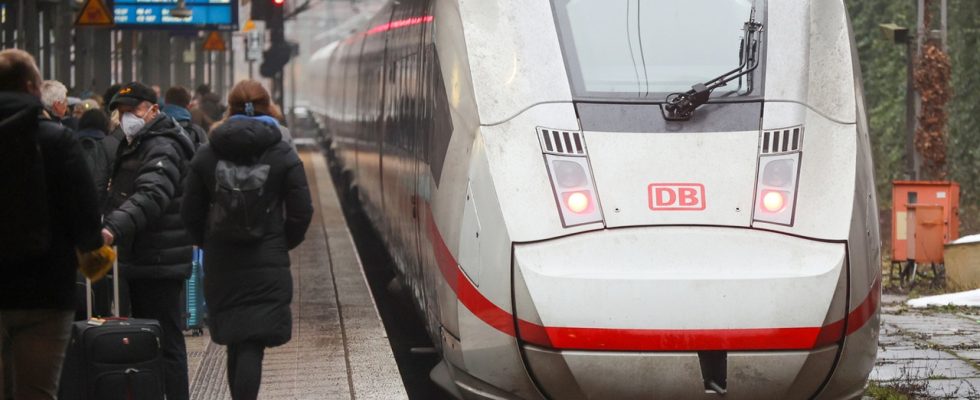breaking news
Deutsche Bahn has failed in its attempt to stop the planned train drivers’ strike. The Frankfurt Labor Court rejected an interim injunction against the GDL union’s strike call. The railway wants to appeal.
The German Locomotive Drivers’ Union (GDL) is allowed to strike on rail transport in Germany from Wednesday. The Frankfurt Labor Court rejected in the first instance an interim injunction that Deutsche Bahn wanted to obtain. The federally owned company initially failed in its attempt to legally stop the industrial action as part of the collective bargaining dispute with the union.
Bahn announces appeal
Deutsche Bahn wants to appeal the decision and will now have the verdict reviewed in the second instance before the Hessian State Labor Court. “This strike lacks legitimacy and a basis. In the interest of our customers, we are doing everything we can to prevent it,” said Florian Weh, general manager of the DB employers’ association AGV MOVE, after the negotiation. “The hurdles are always high for the employer in urgent proceedings. The right to strike is a valuable asset for good reason. But this strike is not a last resort, but rather an imposition that is built on sand,” Weh continued.
In addition, the DB has presented a new offer in which we not only offer the GDL a total of 11 percent, but also go a long way towards meeting its core demands on working hours. This is an excellent basis for a compromise.” Judgments from the second instance are expected on Tuesday.
Strikes from Wednesday if the railway fails
If the railway fails before the Hessian State Labor Court, passengers will again have to prepare for far-reaching restrictions on Deutsche Bahn’s passenger transport between Wednesday and Friday. The GDL strike is scheduled to last nationwide from Wednesday morning at 2 a.m. to Friday evening at 6 p.m. Not only Deutsche Bahn would be affected, but also its competitor Transdev, among others. As with previous industrial disputes, the effects are likely to be felt in the hours before and after.
Crucial point: Reduction in working hours with full wage compensation
Subject to the decision of the State Labor Court, this is the third and longest labor dispute to date in the ongoing collective bargaining dispute. Since the beginning of November, the GDL has been arguing with the railways and other companies for more money. The crux of the matter, however, is the union’s demand for a reduction in working hours for shift workers from 38 to 35 hours per week with full wage compensation.
The GDL has already declared the negotiations with the railways to have failed. Warning strikes lasting a maximum of 24 hours have occurred twice so far. In December, union members approved indefinite strikes in a strike vote with a majority of 97 percent. Since then, longer industrial disputes have been possible. GDL boss Claus Weselsky described the almost three-day strike on Monday as proportionate.
Similar effects as a year ago
During the GDL warning strikes last year, the railway had to cancel around 80 percent of its long-distance transport services. The effects on regional transport varied greatly depending on the region. In some federal states there were almost no trains running anymore. Unless strike participation differs fundamentally, similar effects can now be expected. “This strike is not only absolutely unnecessary, but we also believe it is not legally permissible,” said Deutsche Bahn’s human resources director Martin Seiler. However, the labor court in Frankfurt did not share this opinion.

